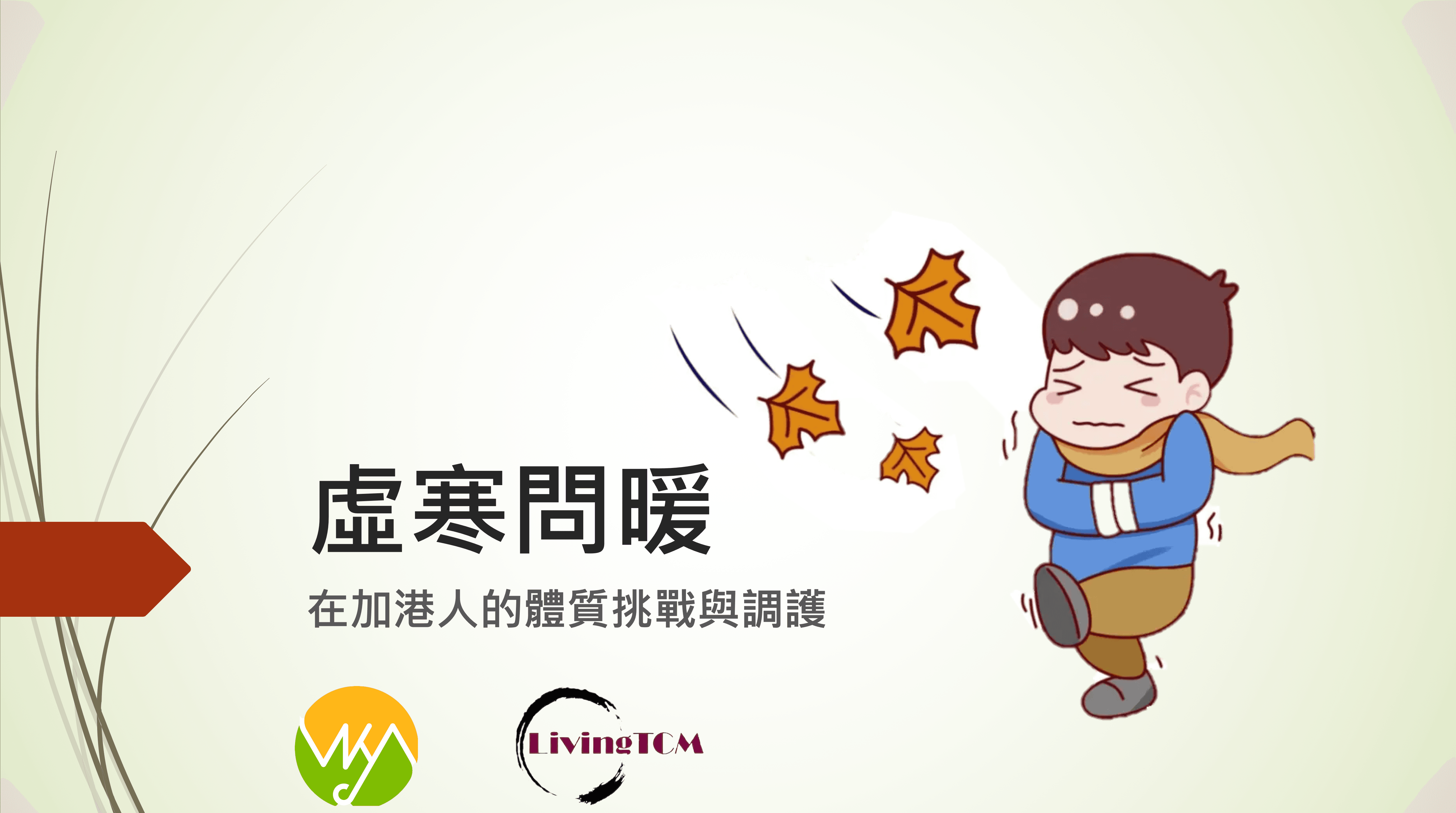想睇中文版?
基本資料
病人資料:羅某,女/47歲。售貨員,要出入凍櫃。
過往史:否認藥物、食物敏感。貧血史、子宮肌瘤史及於2018年行子宮切除手術。
現病史:
習慣性腹瀉1年。長期腹瀉史,曾有好轉。但2018年手術後,病情回復。報大便日2-3行(在持續服用纖維素的情況下),質爛,多在餐後作瀉,故會以少餐(日2餐),清淡飲食及少飲(回家才多飲)為法,並長期服用纖維素,以減少腹瀉的影響。訴此證甚是影響生活,欲調治之。
治療
20.7.2021 初診
大便日2-3行,質爛,偶見完谷不化,作瀉時多伴腹痛,無矢氣腹脹。若不進食纖維素,泄瀉情況更為明顯。神清,語速略快,聲清。體形偏瘦。眠差,難入睡,易醒(4AM),醒後偶可復眠,無夢。納可,7AM – 4PM進食兩餐,無噯氣泛酸。喜熱飲。無胸脅苦滿,口干,日間口苦甚,無眼干澀,無頭痛頭暈。小便調,偶夜尿1次。平常少汗出。怕冷,足涼。偶見腰腿酸軟。脈弦細;舌邊紅,苔白膩,水滑,齒痕。
診斷:泄瀉(腸易激綜合症),脾虛肝旺,肝木乘脾。治以抑肝扶脾,補中益氣之法。
治療:處方中藥濃縮藥粉(下同)如下:
炒白朮,白芍,防風,陳皮,吳茱萸,芡實及補中益氣湯。3天,餐後早晚各1服。
23.7.2021 二診
報藥後諸證未動,泄瀉仍作如前,亦無藥後不適。查舌脈證亦如前診。知藥不對證,故從頭細審諸證,復再查問其飲食習慣,報若晚有飢意,則多以生果或白烚疏菜裹腹,又念及其怕冷肢寒,喜熱飲等症狀,再結合苔白膩、水滑及齒痕等舌象,知其當是寒濕困脾之證,而非肝旺乘脾,治法及方藥改以理中丸溫中祛寒,補氣健脾為主,輔以淡滲利濕,升陽止瀉之藥,擬方如下:
乾薑,黨參 ,炒白朮,大棗,吳茱萸,芡實,葛根,升麻,薏苡仁。3天,餐後早晚各1服。
30.7.2021 三診
報藥後大便較前為實,泄瀉有少改善。但藥後咽干較前為甚,示有上火苗頭。餘證同前。脈弦細,右寸弱;舌邊紅、苔薄黃膩,齒痕略減。循前法並小更方藥,續治之。擬方如下:
補骨脂,吳茱萸,五味子,芡實,葛根,升麻,山藥,白朮及小建中湯。3天,餐後早晚各1服。
2.8.2021 患者照上方自行配藥4天。
8.8.2021 四診
藥後證狀持續改善:大便轉實,絞肚痛減少,餐後便意及次數減少,並可停服纖維素而不作瀉。更藥後已無上火。微調前方續調理。眠納,小便均可。夜能吃菜(早前醫師建議患者加薑)及雞肉而不作瀉。另囑可作慢跑(以微汗喘為度)以旺肺氣。脈弦細;舌邊紅、苔薄黃,略膩,水滑及齒痕續減。守方如上。予藥7天,餐後早晚各1服。
17.8.2021 五診
藥後持續改善,餐後已不作瀉。停藥3天後有餐後欲瀉而沒瀉,欲鞏固故續前來就診調理。報感氣血較前暢旺,胃口增。餘證同前。脈弦,略細;舌邊紅,苔薄黃滑。另訴23/7日之藥使其惡寒感減,能入凍櫃如同事般而不覺凍。但更藥後,惡寒感復來,欲除之如前。擬方如下:
補骨脂,吳茱萸,五味子,芡實,葛根,山藥,白朮,乾薑 (另包,按需要自行如量加減) 及 小建中湯。7天,餐後早晚各1服。
26.8.2021 患者照上方自行配藥10天。
病理概要
泄瀉,西醫名之為「腸易激綜合症」(Irritable Bowel Syndrome (IBS)),或俗稱「腸胃敏感」,是腸臟功能紊亂、失調或腸道過敏所引起的症狀之統稱。患者會出現腹痛、腹脹或腹部不適的情況。大便次數會增加或減少,或大便會變得過硬或稀爛。上述症狀通常會在排便後得到一定的紓緩。但若症狀頻密(達每月三次或以上)或症狀影響日常生活,接受大腸內視鏡檢查卻找不到原因,便有可能患上「腸易激綜合症」。
目前醫學界還未完全掌握「腸易激綜合症」的成因,但一般認為跟個人的飲食習慣、壓力、睡眠失調、情緒變化等有關 ── 從而引起如腸道動カ過快或過慢、痛覺敏感度提升、大腦處理腸臟訊息紊亂等影響。可見症狀包括如腹痛、腹脹、肚瀉、便秘、感到排便不清、大便過硬或呈水狀、或大便時有黏液排出等。
中醫病因及分型方面,首分外內因:泄瀉可由外感風寒濕暑等外因影響而有;也可因臟腑不和式虛損如肝脾不和、脾虛或腎陽虛等而有。因外因而有者,多為實證,病程短,較易康復;因內因而有者,多為虛證,亦有虛實夾雜,一般病程較長。當然,內外因也可相合為病,致使病情纏綿多變。
思路及體會
一診時據舌脈及神態、語氣、體形及口干苦等,斷為脾虛肝旺,肝木乘脾之證,以抑肝扶脾之痛瀉要方為底方,輔以補中益氣湯,再酌加助陽止瀉的吳茱萸及甘澀收斂的芡實。三服藥下,證未見少動,又非量藥不足,當藥不對症,故二診捨肝木乘脾之見,在復查諸證後,改以從寒濕困脾方向入手,而轉用理中丸為底方加減,並重用干薑,致使三診稍取其效 ── 這示病機把握正確,唯因重用干薑而見上火苗頭。因此在四診,改以溫中力稍弱,但能補虛緩急之小建中湯合及溫腎陽為主的四神丸加減,由溫脾轉而脾腎兩溫 ── 脾與腎就如煲及煲下之火,溫腎亦能助去脾寒。五診時,除了主症改善外,患者亦赧「感氣血較前暢旺,胃口增」── 這都是脾胃健運而寒濕隨卻的徵兆,故效不更方,續行前法與方。此外,在底方多次變換中,始終重用升陽止瀉的葛根及甘澀收斂的芡實以治其標,好讓能同時兼顧標本。
想治療此泄瀉之證,所作辨證及所用方藥,不必一定都是最妥貼的 ── 況且明顯地一診時並未有找對病機!但總體而言都是依循「下者舉之」、「寒者溫之」及「虛者補之」這些大法施治,同時也主要是圍繞脾腎兩臟用藥。另一點比較深刻的是在一診服藥後,證情不動時所面對的局面 ── 是辨證錯誤?是藥量不足?藥不對證?還是用藥時間未足?是在那一環節出了錯?在寫這病案時,記起一位老師曾經對我說過:「作為一個醫師,總要隨時要接受自己可能出錯!錯了,就要懂得退後一步,甚至多步,再仔細想想在那一環節出了錯……想要自己有進步,就是要懂得「認錯」……」── 或許這才是我最想藉著這病案分享的一點體會。
Basic Information
Patient Information:
Ms. Luo, female, 47 years old. Salesperson, often enters refrigeratory facilities.
Medical history:
Denies drug or food allergies. History of anemia, uterine fibroids, and underwent a hysterectomy in 2018.
Present illness history:
Chronic diarrhea for 1 year.
Long-standing history of diarrhea, with some periods of improvement. However, after the surgery in 2018, symptoms relapsed. Reports having 2-3 bowel movements per day (while continuing fiber supplementation), loose stools, often after meals, leading to reduced meal frequency (2 meals per day), light diet, and reduced fluid intake (increased at home), supplemented with long-term fiber intake to reduce the impact of diarrhea. States that this condition significantly affects daily life and desires treatment.
Treatment
Initial Consultation on July 20, 2021
2-3 bowel movements per day, loose stools, occasional incomplete digestion of grains, accompanied by abdominal pain during diarrhea, no flatulence or abdominal distension. If fiber supplements are not taken, diarrhea becomes more prominent. Alert, slightly rapid speech, clear voice. Thin body type. Poor sleep, difficulty falling asleep, waking up easily (4 AM), occasional ability to fall back asleep after waking up, no dreams. Normal appetite, eats two meals from 7 AM to 4 PM, no belching or acid reflux. Prefers warm drinks. No chest or rib discomfort, occasional dry mouth, significant daytime bitterness in the mouth, no dry or gritty sensation in the eyes, no headaches or dizziness. Urination normal, occasional nocturia. Rarely sweats. Cold intolerance, cold feet. Occasional back and leg soreness. Pulse: string-like and fine; tongue: red edges, white and greasy coating, moist, teeth marks.
Diagnosis:
Diarrhea (Irritable Bowel Syndrome), spleen deficiency and liver hyperactivity, liver invading the spleen. Treatment: Suppress liver and tonify spleen, invigorate the middle and boost qi method.
Prescription: Powdered Chinese herbal medicine (same below):
Stir-fried Bai Zhu (White Atractylodes), Bai Shao (White Peony Root), Fang Feng (Ledebouriella root), Chen Pi (Tangerine Peel), Wu Zhu Yu (Evodia fruit), Qian Shi (Euryale seeds), and Bu Zhong Yi Qi Tang (Tonify the Middle and Augment the Qi Decoction). 1 dose after breakfast and dinner for 3 days.
Second Consultation on July 23, 2021
Reports no change in symptoms after taking the medicine, diarrhea persists as before, no adverse reactions to the medicine. Examination of tongue, pulse, and symptoms remains unchanged. Recognizing that the medication does not match the symptoms, a detailed review of the symptoms was conducted, as well as an inquiry into dietary habits. Reports feeling hungry in the evenings and often eating fruits or lightly steamed vegetables to satisfy hunger. Also considering the symptoms of cold intolerance, cold limbs, preference for warm drinks, combined with the tongue coating of white and greasy, moist, and teeth marks, it is recognized as a pattern of spleen stagnation due to cold and dampness, rather than liver overacting on the spleen. Treatment and prescription are changed to focus on warming the middle, dispelling cold, tonifying qi, and strengthening the spleen, with the addition of herbs to promote diuresis, dispel dampness, and ascend yang.
Prescription:
Gan Jiang (Dried Ginger), Dang Shen (Codonopsis), Stir-fried Bai Zhu (White Atractylodes), Da Zao (Jujube), Wu Zhu Yu (Evodia fruit), Qian Shi (Euryale seeds), Ge Gen (Kudzu root), Sheng Ma (Cimicifuga), and Yi Yi Ren (Coix seed). 1 dose after breakfast and dinner for 3 days.
Third Consultation on July 30, 2021
Reports slight improvement in diarrhea after taking the medicine, stools are slightly more solid, and abdominal cramps are reduced. However, dry throat after taking the medicine is more severe than before, indicating signs of rising internal heat. Other symptoms remain unchanged.
Pulse: string-like and fine, weak at the right pulse position
Tongue: red edges, thin yellow and greasy coating, slightly reduced teeth marks
Continuing previous treatment with minor adjustments.
Prescription:
Bu Gu Zhi (Psoralea fruit), Wu Zhu Yu (Evodia fruit), Wu Wei Zi (Schisandra fruit), Qian Shi (Euryale seeds), Ge Gen (Kudzu root), Shan Yao (Chinese yam), Bai Zhu (White Atractylodes), Gan Jiang (Dried Ginger), and Xiao Jian Zhong Tang (Minor Construct the Middle Decoction). 1 dose after breakfast and dinner for 3 days.
Patient self-administers the prescribed medication for 4 days as instructed.
August 8, 2021, Fourth Consultation
Symptoms continue to improve after medication: stools are becoming solid, abdominal cramps are decreasing, postprandial urgency and frequency are decreasing, and fiber supplements can be discontinued without causing diarrhea. No signs of internal heat after adjusting the medication. Minor adjustments to previous treatment. Sleep and appetite are normal. Can eat vegetables (doctor previously advised the patient to add ginger) and chicken without causing diarrhea. Also advised to engage in jogging (at a moderate pace to induce slight sweating) to invigorate lung qi.
Pulse: string-like and fine
Tongue: red edges, thin yellow coating, slightly greasy, moist, and reduced teeth marks
Continue with previous prescription. Medicine given for 7 days, 1 dose after breakfast and dinner.
August 17, 2021, Fifth Consultation
Continued improvement after medication, no diarrhea after meals. After stopping medication for 3 days, experienced a desire to have a bowel movement after meals but did not have one. Came back for continued treatment to consolidate improvement. Reports feeling more energetic and increased appetite. Other symptoms remain unchanged. Pulse: string-like, slightly fine; tongue: red edges, thin yellow and greasy coating. Also reported that the medicine taken on July 23 reduced the feeling of cold sensitivity, allowing the patient to work in the refrigerated area without feeling cold. However, after changing the medication, the feeling of cold sensitivity returned and wishes to address it as before.
Prescription:
Bu Gu Zhi (Psoralea fruit), Wu Zhu Yu (Evodia fruit), Wu Wei Zi (Schisandra fruit), Qian Shi (Euryale seeds), Ge Gen (Kudzu root), Shan Yao (Chinese yam), Bai Zhu (White Atractylodes), Gan Jiang (Dried Ginger), and Xiao Jian Zhong Tang (Minor Construct the Middle Decoction). 1 dose after breakfast and dinner for 7 days.
August 26, 2021: Patient self-administered the prescribed medication for 10 days.
Summary of Pathology
Diarrhea, known in Western medicine as Irritable Bowel Syndrome (IBS), or commonly referred to as “gastrointestinal sensitivity,” is a collective term for symptoms caused by gastrointestinal dysfunction, imbalance, or hypersensitivity. Patients may experience abdominal pain, bloating, or discomfort. The frequency and consistency of bowel movements may increase or decrease, and stools may become hard or loose. These symptoms usually provide some relief after defecation. However, if the symptoms are frequent (three times or more per month) or affect daily life, and no cause is found through colonoscopy, the patient may be diagnosed with “irritable bowel syndrome.”
The medical community has not fully understood the cause of IBS, but it is generally believed to be related to individual dietary habits, stress, sleep disorders, emotional changes, etc., leading to factors such as rapid or slow intestinal motility, increased sensitivity to pain, and disruption of brain processing of intestinal messages. Symptoms may include abdominal pain, bloating, diarrhea, constipation, feeling of incomplete evacuation, hard or watery stools, or mucus during bowel movements.
In terms of Traditional Chinese Medicine (TCM) etiology and classification, the external and internal factors are distinguished: diarrhea can be caused by external factors such as wind, cold, dampness, and summer heat, or internal factors such as disharmony between organs, spleen deficiency, or kidney yang deficiency. Diarrhea caused by external factors is mostly a syndrome of excess, with a short course and easier recovery. Diarrhea caused by internal factors is mostly a syndrome of deficiency, sometimes with a combination of deficiency and excess, and generally has a longer course. Of course, internal and external factors can also combine to cause complex and protracted conditions.
Reflections
During the initial consultation, based on the examination of the tongue, pulse, spirit, tone, body shape, and dry mouth bitterness, the diagnosis was spleen deficiency and liver hyperactivity, with the liver overacting on the spleen. The prescription aimed to suppress the liver and tonify the spleen, with Da Cheng Qi Tang as the base formula, supplemented with Bu Zhong Yi Qi Tang to tonify the middle and boost qi. Additionally, Wu Zhu Yu was added to assist yang and stop diarrhea, and Qian Shi was included to consolidate and astringe. After three doses of medication, there was no significant improvement in symptoms, and it was not due to insufficient dosage. Since the medication did not match the symptoms, the liver overacting on the spleen diagnosis was abandoned in the second consultation. After re-examining the symptoms, the approach shifted towards addressing cold and dampness stagnating the spleen, and the prescription was changed to Li Zhong Wan as the base formula with adjustments, and dried ginger was heavily used, resulting in slight signs of internal heat. Therefore, in the fourth consultation, the focus was shifted to slightly weaker warming of the middle, primarily tonifying kidney yang with Si Shen Wan, combined with Xiao Jian Zhong Tang to soothe deficiency and urgency. By warming the spleen, the spleen and kidney are both warmed, similar to heating the pot and the fire below it. In the fifth consultation, in addition to the improvement in the main symptoms, the patient also reported feeling more energetic and increased appetite, indicating signs of the spleen and stomach functioning well and dispelling cold and dampness. Therefore, the treatment method was not changed, and the previous prescription was continued. Additionally, throughout the changes in the base formula, Ge Gen and Qian Shi were consistently used to stop diarrhea and consolidate, ensuring simultaneous treatment of both symptoms and the root cause.
In treating this diarrhea syndrome, the diagnostic methods and prescriptions used do not necessarily have to be the most appropriate—especially evident since the correct diagnosis was not made during the initial consultation! However, overall, the treatment followed the principles of “raising what has fallen,” “warming what is cold,” and “tonifying what is deficient,” primarily focusing on the spleen and kidney with medication. Another profound point is the situation faced when symptoms do not improve after medication during the initial consultation—was the diagnosis incorrect? Was the dosage insufficient? Was the medication mismatched with the symptoms? Or was the duration of medication inadequate? Which aspect went wrong? While writing this case study, I remembered a teacher telling me, “As a physician, one must always be prepared to accept the possibility of making mistakes! When you’re wrong, you must know to step back, perhaps even take multiple steps back, and carefully consider where the mistake occurred… Wanting to progress means understanding how to admit mistakes.” Perhaps this is the insight I most wanted to share through this case study.




